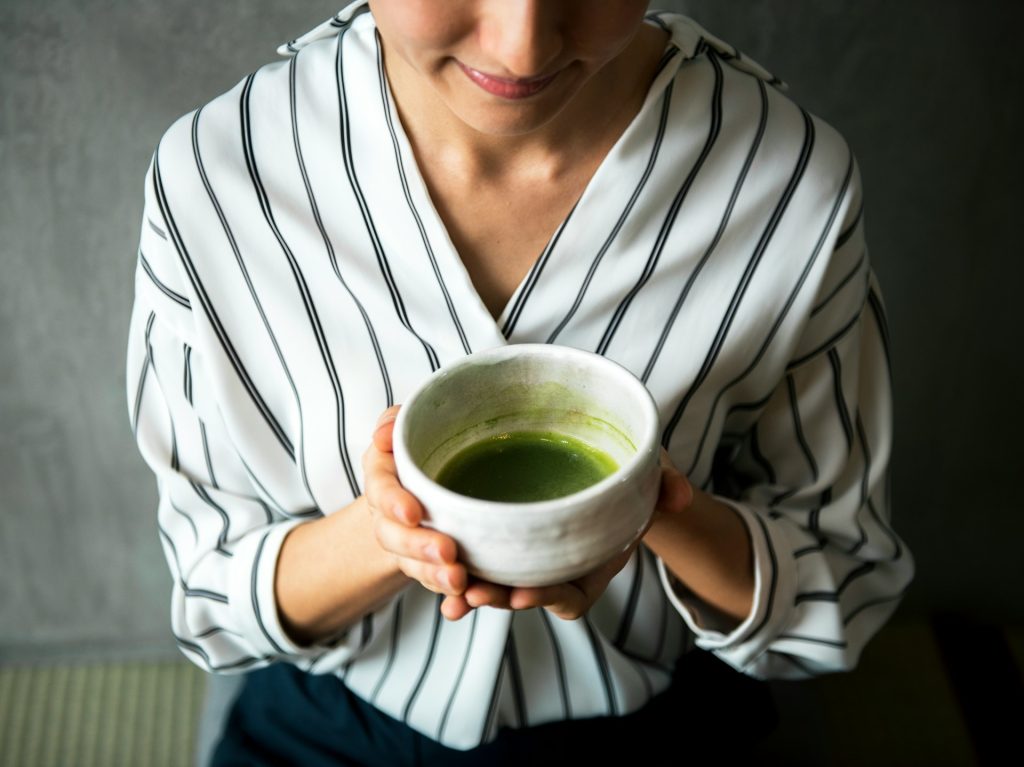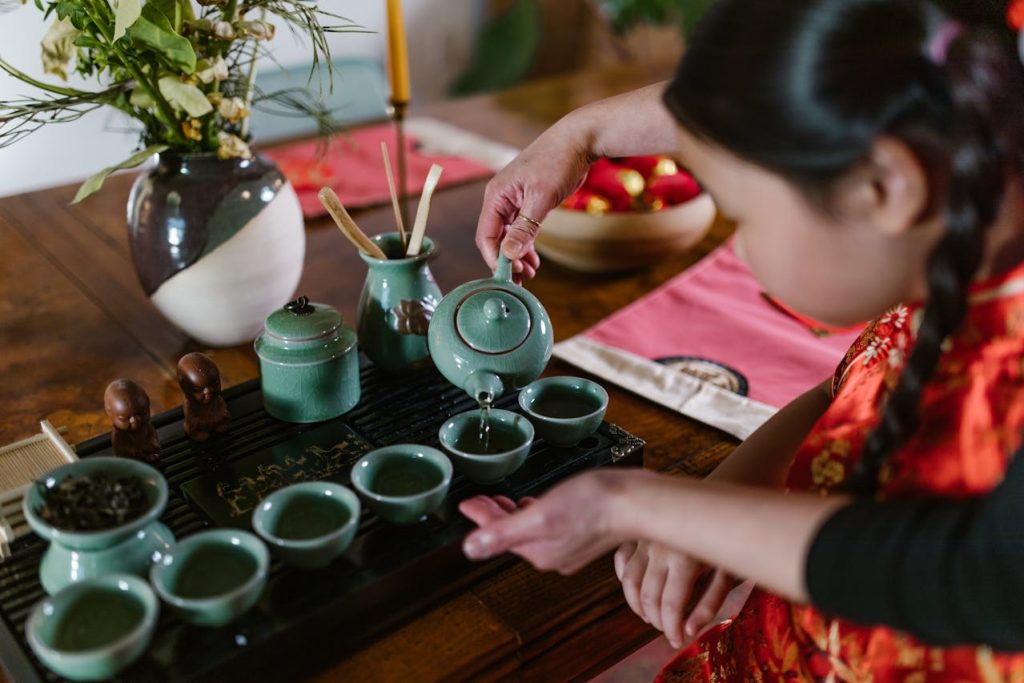Table of Contents
The ancient drink that is suddenly capturing attention in longevity research isn’t some fancy supplement or costly elixir – it’s something your grandmother probably enjoyed every morning. Recent studies from leading research institutions suggest green tea could be a key player in extending lifespan, and the science behind it is revolutionizing our understanding of aging. These beneficial compounds, readily available in quality green tea, show promise in supporting longevity and overall wellness.
The Living Proof: A Look at the World’s Longest-Living Communities

In Okinawa, Japan, where an extraordinary number of people live well past 100, green tea isn’t just a beverage – it’s a cornerstone of daily life. These remarkable islanders consume an average of 5-7 cups daily, maintaining their tradition through generations. The Okinawan population has one of the highest concentrations of centenarians globally, with a remarkable 68 centenarians per 100,000 people – more than triple the rate found in most Western countries.
What’s even more fascinating is how this tradition has evolved over the centuries. Ancient texts from the region reveal that green tea wasn’t just consumed for pleasure – it was considered a vital part of their medical practices and spiritual ceremonies. Modern science is now validating what these cultures have known for generations.
The Science Behind the Cup

What makes green tea stand out in longevity research is its unique molecular composition. At its heart lies EGCG (Epigallocatechin gallate), a potent catechin that’s been extensively studied for its age-defying properties. Unlike many other antioxidants, EGCG has demonstrated an exceptional ability to cross cell membranes and provide protection at the cellular level.
Recent studies published in the Journal of Nutrition have shown that regular green tea drinkers have significantly lower oxidative stress markers and longer telomeres – the protective caps on our DNA that typically shorten with age. This suggests that green tea might help slow down the biological aging process at a molecular level.
Furthermore, research from the National Cancer Institute has found that the polyphenols in green tea may help prevent the formation of certain types of tumors. These findings have opened up new avenues in preventive medicine and anti-aging research.
The Inflammation Connection
One of the lesser-known benefits of green tea is its powerful anti-inflammatory properties. Chronic inflammation is increasingly recognized as a key driver of aging and age-related diseases. Green tea’s compounds, particularly EGCG, help combat this “inflammaging” process through multiple pathways:
- Direct neutralization of free radicals that cause cellular damage
- Activation of the body’s antioxidant defense systems
- Modulation of inflammatory signaling pathways
- Support for healthy cellular repair mechanisms
Beyond Just Living Longer: The Quality of Life Factor

The benefits of green tea extend far beyond just adding years to your life – it’s about adding life to your years. Regular consumption has been linked to:
Cognitive Benefits:
- Enhanced memory retention and mental clarity
- Improved focus and concentration
- Potential protection against age-related cognitive decline
- Better stress management through L-theanine
Physical Health Improvements:
- Better cardiovascular health with improved blood pressure regulation
- Stronger bone density, particularly important as we age
- Improved metabolic health and weight management
- Enhanced immune system function
- Better digestive health and gut microbiome balance
Making It Work: The Right Way to Drink Green Tea

The way you prepare and consume green tea can significantly impact its benefits. Water temperature, steeping time, and even the time of day you drink it matter. Here’s what the research suggests:
Water Temperature: Never use boiling water – let it cool to about 160-180°F (70-80°C). Boiling water can destroy some of the beneficial compounds.
Steeping Time: Allow 2-3 minutes for steeping. Any longer can make the tea bitter without adding benefits.
Timing: While you can enjoy green tea throughout the day, studies suggest that morning consumption (about an hour after breakfast) might optimize the absorption of its beneficial compounds.
Quality Matters: Choose loose-leaf tea or high-quality tea bags. Lower-quality teas might contain fewer beneficial compounds and potentially harmful additives.
Synergistic Effects: Combining Green Tea with Other Healthy Habits
Green tea’s benefits are amplified when combined with other healthy lifestyle practices:
Exercise: The antioxidants in green tea may enhance exercise performance and recovery.
Meditation: L-theanine in green tea complements mindfulness practices by promoting calm alertness.
Healthy Diet: Green tea’s compounds work synergistically with other nutritious foods, particularly those rich in vitamin C and citrus fruits.
Potential Considerations and Limitations

While green tea offers impressive benefits, it’s important to approach it mindfully. Some people might be sensitive to caffeine, even in the lower amounts found in green tea. Additionally, the tannins in green tea can affect iron absorption, so it’s best to drink it between meals rather than with them.
Pregnant women, people with certain medical conditions, or those taking specific medications should consult their healthcare provider about green tea consumption. The caffeine content, while lower than coffee, might still be a concern for some individuals.
The Long-Term Perspective: Building a Sustainable Habit
The key to reaping green tea’s longevity benefits lies in consistency rather than quantity. Maintaining a regular habit of 2-3 cups daily provides optimal benefits. This amount delivers sufficient beneficial compounds without overdoing caffeine intake or creating other potential issues.
A Cup of Prevention

What makes green tea particularly remarkable is its role in preventive health. Research indicates that its compounds work proactively, helping to maintain cellular health before problems arise. This preventive approach aligns perfectly with the modern understanding of longevity – it’s easier to maintain good health than to fix problems after they develop.
The Future of Longevity Research
Current research continues to uncover new benefits of green tea consumption. Scientists are particularly interested in how its compounds might influence genetic expression and cellular repair mechanisms. These studies could potentially reveal even more ways that green tea contributes to longevity and healthy aging.
Incorporating this ancient beverage into your daily routine isn’t just about following a trend – it’s about embracing a time-tested practice that continues to impress researchers with its wide-ranging benefits. Whether you’re in your 20s or your 60s, it’s never too early or too late to start enjoying the potential life-extending benefits of green tea.

Hi! I’m Dave, a longtime biohacker focused on natural ways to improve health and performance. My work revolves around analyzing the science behind cognitive enhancers, nutrition, and longevity strategies. I’m particularly interested in natural nicotine products and their effects on focus and energy. Everything I share is based on research and real-world application, ensuring practical, reliable insights. Please note, none of the information shared here is medical advice.




